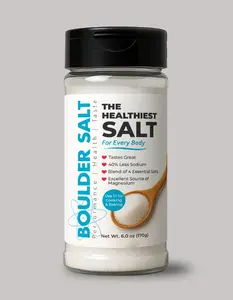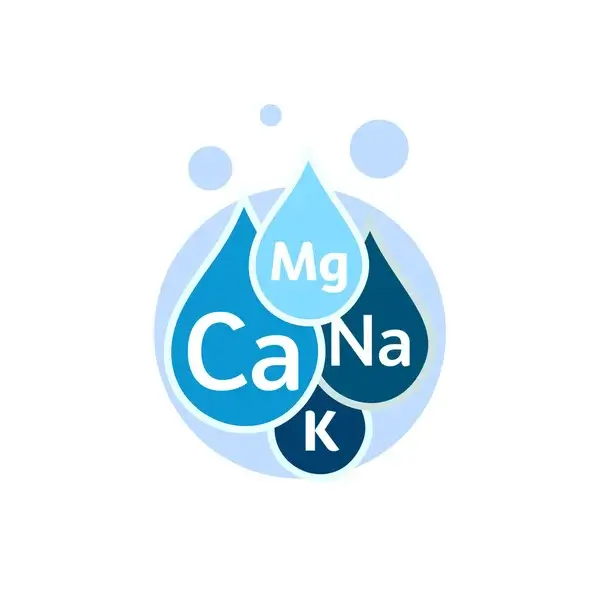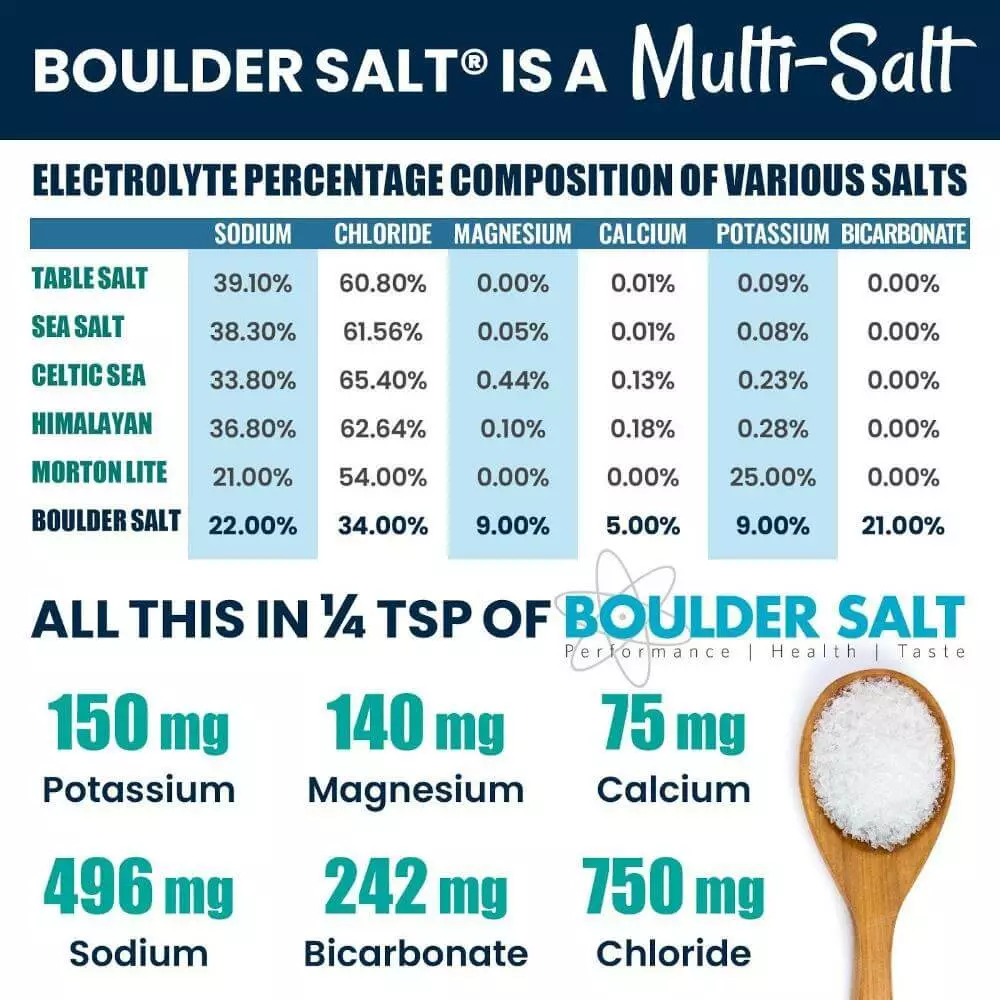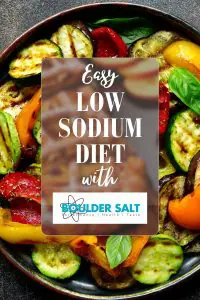
Boulder Salt’s New 6oz Shaker Bottle: The Healthiest Salt for Your Kitchen
The Healthiest Salt – Now Available in a New 6-oz Shaker: Convenience Meets Nutrition! Enjoy The Healthiest Salt you can get –

| Healthy Salt |Boulder Salt Company |Macro-Nutrient High-Performance Multi-Salt | May Help POTS Patients Live Healthier Lives!
___________________________________________
POTS is short for Postural orthostatic tachycardia syndrome.
Postural: position of body
Orthostatic: mobilizing in an upright position
Tachycardia: rapid heart rate out of normal range
It is a condition that affects blood circulation, the autonomic nervous system, and the sympathetic nervous system within your body. These vital functions contribute to your body’s maintenance, long-term health, and direct functioning. The autonomic nervous system is a regulatory system that maintains critical organ systems. The sympathetic nervous system’s primary responsibility is stimulating the fight or flight response.
It is generally marked by sudden lightheadedness, fainting, and a rapid increase in heartbeat when standing up after sitting, leaning back, or laying down. etc.
POTS is a part of a phenomenon known as orthostatic intolerance: The development of symptoms when standing up from a reclining position, which may be alleviated by sitting or lying back down. The main symptom of orthostatic intolerance is lightheadedness, fainting, and a rapid increase in heartbeat.
Blood pressure and heart rate function separately but can affect each other, especially during extremes- when blood pressure is really high and heart rate is meager. POTS dysregulates the normality of blood vessel contraction and heart rate response. This is reflected negatively as unstable blood pressure levels.
Each patient with POTS is different and so is each case. People who have POTS could watch symptoms arise and fall over a period of years. For most POTS cases, with changes in diet, lifestyle, holistic treatment, and physical activity, a person with POTS will experience a positive impact on the quality of their life. POTS can be eliminated if the root underlying cause of the condition is found and treated with care.
The top three most common forms of POTS are:
No one knows exactly what causes POTS. Research points to genetic factors. In some cases, autoimmunity was found to be the underlying cause. While heart rate and blood pressure are factors in the symptoms of POTS it hasn’t been linked to any cardiovascular diseases. POTS may be related to chronic fatigue syndrome. (source).
In addition to these symptoms, a lot of people with POTS experience Gastropesis…
Gastroparesis, also known as delayed gastric emptying, is a condition that decreases or stops the movement of food/nutrients from the stomach to the small intestine. The stomach contracts to break up food and transport it through the gastrointestinal tract, releasing hormones and enzymes as it breaks down and allows for the digestion of food. Gastroparesis can occur when the vagus nerve is damaged, in this case, POTS is associated. Food then moves slower than is normal or healthy from the stomach to the small intestine. Sometimes it stops moving altogether. Patients’ bodies may also undergo malnourishment. Because POTS patients can experience intolerances and reactions to a lot of staple foods, they can lack the ample nutrition they require for their bodies to function.
Electrolytes are important to keeping your nervous system and muscles functioning and your internal environment balanced. Since Boulder Salt is composed of essential electrolytes, it helps to regulate the nervous system in terms of regulating POTS symptoms. Optimizing these benefits means making sure you have the best salt for POTS.
POTS can be treated at home like many other diseases, conditions, and accidents. Healing and treating yourself can be a powerful process that teaches you self-reliance skills. When we heal ourselves we can reconnect with the basic elements that are the building blocks of life.
Boulder Salt recommendation for Postural Orthostatic Tachycardia Syndrome: 4 grams, 1/2tsp (2servings) of Boulder Salt in 20-24oz of water, first thing upon rising. Before your coffee/tea/morning. (bouldersaltcompany.com)
Aerobic exercise and lower limb resistance training can help to circulate blood throughout the body. (source)
Move your hips and thighs to the side…
Bring your knees to 90 degrees, placing your right hand against the outside of your right knee and your left palm on the outside of your left knee.
Bending Hips With Knees Bent…
Bending your left knee 90 degrees, lifting your left thigh while pushing down with your left forearm and hand. Repeat this exercise using your right thigh as the working leg and your right as the resisting arm.
Why do POTS Patients Need More Salt?
According to Dysautonomia International, “it is often recommended to increase fluid and salt intake to increase blood volume, which is typically low in POTS patients. This has proven to be particularly helpful in patients with blood pooling, hypovolemia, or hypotension.” (source)
One reason people with POTS experience faintness when they stand up is low circulating blood volume. Letting yourself drink more fluids is helpful, but the most important aspect to keeping the fluids in circulation is sodium. The healthiest (and tastiest) way to take in sodium is with the ideal blend of potassium, magnesium, calcium, and bicarbonate. This is far better for you than taking it is accompanied by only chloride.
What Best Salt For POTS Syndrome?
Boulder Salt (bouldersaltcompany.com) Is a healthy multi-salt designed with high nutrient content unlike your typical table salt, pink salt, and sea salt. Its high nutrient content and ideal ratio of electrolytes make it the best salt for POTS. Yes, intaking sodium is important but the highest quality of salt should be considered when investing in your health. Calcium, Magnesium, and Potassium are the building blocks of life and that’s what Boulder Salt is.
How much salt for POTS syndrome patients?
Many people who have POTS need up to three times more sodium than the standard suggested by the US Dietary Guidelines: one teaspoon of salt. You can utilize Boulder Salt (bouldersaltcompany.com) in a variety of ways: from making electrolyte drinks, pickles, olives, broths, brines, and rubs to ways of incorporating lots of yummy salt with high volumes of essential nutrients, Calcium, Magnesium, and Potassium.
“Electrolyte”… is a general description for particles that carry a positive or negative electric charge.
Nutritionally, it is referring to important minerals found in your blood, sweat, and urine.
When the minerals dissolve in fluid, they make electrolytes — positive or negative ions used to carry out metabolic processes.
Electrolytes that are in your body are:
These electrolytes are required for various bodily processes, including correct nerve and muscle function, maintaining acid-base balance, and keeping you fully hydrated!
Boulder Salt (bouldersaltcompany.com) contains these electrolytes in the ideal ratio, in the form of a highly nutritious salt.

More to explore

Boulder Salt’s New 6oz Shaker Bottle: The Healthiest Salt for Your Kitchen
The Healthiest Salt – Now Available in a New 6-oz Shaker: Convenience Meets Nutrition! Enjoy The Healthiest Salt you can get –

Low Sodium Diet Ideas Any Diet is Low Sodium with Boulder Salt! Are you looking for low sodium diet ideas and recipes

Mountain View Welding does excellent work!
We make the highest recommendation for Loren Tonsing and the staff at https://mountainviewwelding.com Mountain View Welding does excellent work! Excellent communication to